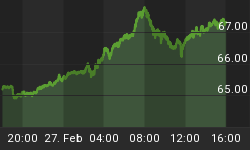Don't fear the end of QE says economist Ethan Harris in a November 7th BofA Merrill Lynch Global Research note. Quoting Mr. Harris...
One of the striking things in the last five years is the wildly conflicting claims about the impact of QE on the economy and markets... investors should neither fear nor celebrate the end of QE3 asset buying. It never posed a serious inflation or bubble risk. It has been a small stimulus to the markets and the economy and, hence, its withdrawal is a small de-stimulus. Since its end was well advertised... it is already largely priced into the markets. The Fed can always bring it back. And other central banks are more than replacing the end of Fed buying.
We could not disagree more with Mr. Harris. True, the Federal Reserve's (Fed) asset purchase program (QE) has not had much of an impact on the real economy but it has had a huge impact on the markets.
Continuereading the rest of the article here.















